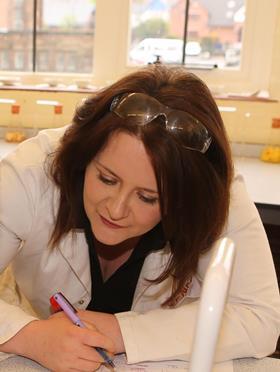Trainee, newly qualified and early career teachers ask the questions you daren’t, and our experts provide the answers. If you’ve got a question, email us

What if your NQT school isn’t working out? When you’ve already talked to a trusted member of staff and with the local authority but still decide you need to move on or possibly move into a TA role for example, what advice and support is available? Would it still be possible to get back into teaching later?
@Miss_Sciencer/Miss Cooltray, NQT

Andy Chandler-Grevatt, senior lecturer in science education, answers: If you feel able, talk to someone in school – head of department, professional tutor or deputy head – to express your concerns. It is important they know how you feel. They may also be able to work out why it is not working out. Each school has an NQT ‘appropriate body’, a person who oversees NQTs in your area. You should have been told about this person at your induction. I’d recommend talking through your concerns with them before you do anything.
I also suggest you contact your tutor from your ITE provider. Universities support their NQTs and they can sometimes help you find a way through, or, if necessary, help you find a job in another school. In my experience, schools are so varied that not every teacher is suited to every school, but the good news is that means there is a school for you. You will find your school I am sure.
When talking through and completing calculations do you use units throughout the steps and cancel them where appropriate? I was taught this way and continued with this approach throughout my education and career in industry, but I see a lot of schools and teachers not doing this. I don’t want to confuse pupils by insisting they use units in my lessons, but also believe it’s too important not to at least mention.
Rob Burgess, trainee teacher

Kristy Turner, school teacher fellow, answers: Generally in schools most teachers don’t include units within the calculation. You are correct, there are huge advantages to including units and a great deal of research evidence supports this pedagogical approach. The biggest reason teachers don’t do it is because units aren’t insisted on or credited by assessment systems at school level. It isn’t modelled in mark schemes and unfortunately they are a significant source of what’s ‘correct’ for teachers.
You’ll need to strike a balance between your own ideology and the status quo. You might find that insisting on including units becomes a step too far in terms of expectations, particularly with students aged 11–16. Post-16 and with advanced chemistry, the benefits are much greater and including units could become the personal eccentricity you’re known for.
A word of warning though, don’t be surprised if students don’t follow your lead. They often use mark schemes as sources of what’s right too.
How can I encourage students to talk to each other, and check that they’re talking about what I want them to talk about?
S, an early career teacher

Emily Seeber, chemistry teacher who is studying for a master’s in teacher education, answers:
Successful planning for student talk draws on two elements: the level and the task. Firstly, students working in groups should have a task which is open-ended, even ambiguous, and actually benefits from more brains. In other words it needs to be sufficiently challenging. Closed or easy questions allow groups to divide the task into individual chunks, or one student to complete the whole task.
Secondly, the students need to create something or physically respond to or annotate a resource: for example, planning an experiment, a concept cartoon, identifying key vocabulary concepts from a video or demonstration, or critiquing a long answer response. If there are no physical models involved, having students working on a group mini whiteboard (or a big blank sheet of paper with board pens) enables you to identify productive effort during the task, and promotes actual collaboration much better than students using their own notes. Students can hold up the whiteboard to show you their work, too. This also gives you something to check through questioning – how many keywords has your group got?, how many errors has your group spotted? – without disrupting the flow of activity.
Trainee or new teacher? Submit your teaching question to education@rsc.org with Classroom questions in the subject line. Unfortunately, we are unable to reply individually to each question.









No comments yet